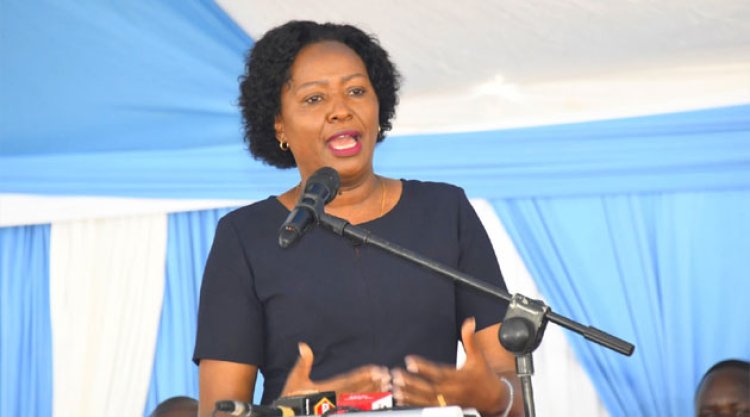Raila Warns Of More KEMSA-Like Scandals In Ruto Govt
Raila forewarned that the uprising of more scandals in the Kenya Kwanza government would force the Head of State to embark on mass firings

Azimio la Umoja leader Raila Odinga, on Tuesday, May 16 warned of scandals similar to the one affecting the Kenya Medical Supplies Authority (KEMSA) manifesting themselves in President William Ruto's government which led to drastic reforms.
Speaking at the Jaramogi Oginga Odinga Foundation in Nairobi, Raila forewarned that the uprising of more scandals in the Kenya Kwanza government would force the Head of State to embark on mass firings as was the case with Health Principal Secretary Josephine Mburu.
The former Prime Minister however urged the government to ruthlessly crack the whip on individuals bungling KEMSA to the point of causing the massive loss of public funds from the critical authority.

KEMSA premises in Nairobi. /FILE
"The KEMSA issue...all these issues that we talked about, issues of corruption. The government is actually reacting to a very major issue. I don't think that this is the only scandal in KEMSA.
"Within a short period of time, we are going to be seeing haemorrhage in this government," he stated.
Raila however claimed that Ruto was running his government with an iron fist and not allowing his Cabinet to exercise their roles within their ministries.
"A government should be run as a government, you have ministers who are charged with responsibilities. Why are we not seeing ministers delegating as the president is the one coming up with key policies?
"A major statement should come from a minister in his ministry. If there's a scandal in health, it should come from the minister. It raises more questions than answers in the so-called surgery in the ministry," he added.
His sentiments come despite Health Cabinet Secretary Susan Nakhumicha, on Monday, May 15 revealing that she played a huge part in Mburu's termination.
Speaking hours after Mburu's firing, the CS noted that she had performed her role as the principal advisor of the President in the Ministry of Health as the Head of State himself was looking hard for a solution regarding the Kenya Medical Supplies Authority (KEMSA) scandal on mosquito nets.
She added that the decision to terminate the PS was done after thorough consultations with the Head of State and that Ruto's demand for accountability had informed Mburu's sacking, whether the PS was involved in the matter which was yet to be established.
Nakhumicha had appeared to point an accusing finger at Mburu after revealing that her mandate was being the accounting officer for the ministry and was expected to have actively participated in the KEMSA tendering processes.
"I have been involved in the decision that has been made today. To the best of my knowledge, I have advised the President as his principal advisor.
"Specifically, I would not tell whether she was involved or not. Principal Secretaries are the accounting officers of the ministry. It is expected that in their day-to-day, they will interact with the institutions when it comes to such matters," she stated.
Her sentiments were a clarification of Ruto's decision to fire the PS, which raised questions with some Kenyans dragging Peter Tum, the Principal Secretary for Medical Services, into the saga.
Upon appointment, Tum was designated to handle KEMSA, and Mburu was charged with handling medical services policies, medical research and Pharmacy and Medicines Control.

Dr Josephine Mburu was dismissed as Principal Secretary for Public Health on Monday, May 15, 2023. /CAPITAL GROUP
Before PS Mburu was fired, she was directly involved in various government functions regarding the supply of mosquito nets, including plans on Wednesday, April 19 by the Ministry of Health to distribute 18.3 million Long Lasting Insecticidal Nets (LLINs) in 28 targeted counties in 2024.
Mburu argued that the move aimed to ensure households in malaria-risk areas have one net for every two household members, ultimately contributing towards reducing the burden of malaria in the country.






